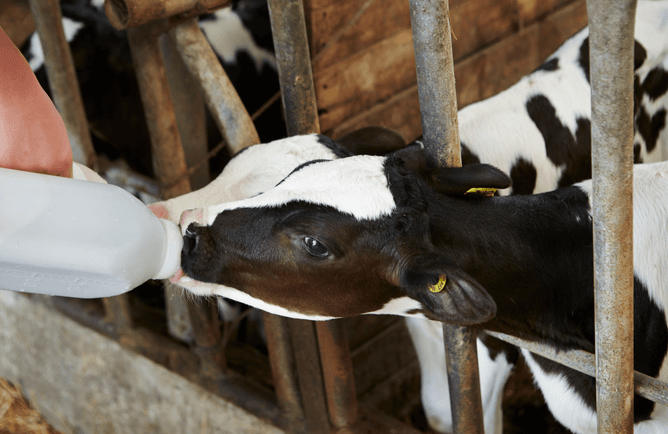Getting this right will pay you back in health, fertility and milk in their first lactation and beyond!
As another calving season approaches and the calf sheds are getting prepared, it's time to think about nutrition for calves. It isn't as simple as ‘just feeding milk’.
The target for rearing calves is to have fully grown, in-milk and problem-free 20-24 month old heifers in the future. This is NOT the same as weaning a 100kg calf in the fastest and cheapest way possible.
Research shows that how calves are fed pre-weaning affects their future milk production and fertility. It also impacts on their health just after weaning.
Improved early nutrition of calves decreases the incidence of diarrhoea. Also, an increasing plane of nutrition has been shown to result in an increase in organ growth, a better immune response and overall health.
Calves fed on a higher plane of nutrition (1.1 kg/d of milk replacer in comparison to the ‘conventional’ 0.45 kg/d) have also been shown to withstand a Cryptosporidium challenge and these animals hardly got sick and did not lose any weight! (Ollivett et al, 2012).
There is also a carry-over effect of early nutrition on follicle growth. Calves fed more milk (10L/d instead of 5L/d) early in life had better and stronger follicles through to their first ovulation (Bruinje et al, 2019).
It even has an effect on the amount of milk produced in their first lactation. An increased milk intake in early life can lead to an average increase of 435kg of milk (which means 31 milk solids) in the first lactation! (Soberon et al, 2012).
Why do so many calves struggle after weaning?
Often, calves are weaned too early, or weaned from high amounts of milk too quickly/not gradually enough.
Poor water management and poor quality starter milk replacer or composition will also lead to problems later on. Combined with weaning stress, it will compromise the health and wellbeing of calves and lead to growth slumps and increased health issues.
In other words, nutrition of calves is more than ‘just feeding milk’! If you properly supply the next generation in their first weeks of life, they will pay you back in health, fertility and milk in their first lactation and beyond!

